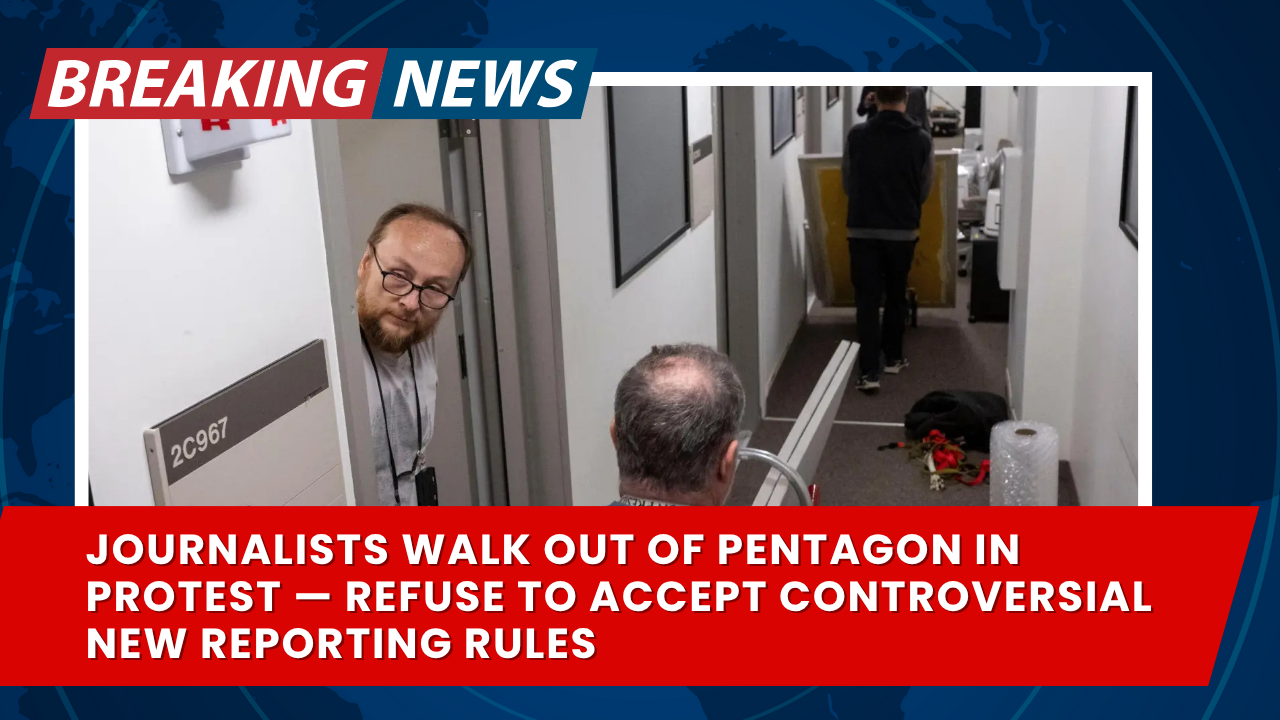In a rare act of defiance, several journalists covering the Pentagon turned in their press credentials and left the building after refusing to sign new reporting rules imposed by the Department of Defense. The move has sparked national debate about government transparency and the future of press freedom within U.S. military institutions.
New Restrictions Spark Outrage
The Pentagon’s updated policy demands that reporters acknowledge strict guidelines limiting how they can collect and publish information, even if the material is unclassified. Under the new rules, the Department of Defense would reserve the right to revoke press credentials or label a journalist a “security risk” if they publish content without prior authorization.
Major media outlets including Reuters, The New York Times, and Fox News reportedly declined to sign the new agreement, citing serious concerns over censorship and government interference. Only a few outlets agreed to comply with the policy, leading to an unprecedented exodus of reporters from the Pentagon press room.
Press Corps Walkout
As the Pentagon’s deadline expired, journalists cleared their workspaces, packed up their equipment, and left the building. Veteran correspondents emphasized that this was not an act of rebellion, but a stand for press independence. “We’re not walking away from our duty to report — we’re walking away from censorship,” one reporter said.
The Pentagon Press Association called the new rules “unprecedented and unacceptable,” warning that they could severely restrict journalists’ ability to hold defense officials accountable. The organization said that allowing the government to determine what information qualifies as publishable undermines democracy’s core principle — a free and independent press.
Pentagon Defends the Move
Defense Secretary Pete Hegseth defended the new guidelines, arguing they are necessary to “maintain order and protect sensitive national security information.” Hegseth insisted that the rules are not meant to silence journalists but to prevent “reckless leaks” that could endanger military operations.
President Donald Trump also voiced support for the Pentagon’s policy, calling it a “reasonable step toward responsible reporting.” Critics, however, say the move reflects a broader pattern of tightening control over public information within federal institutions.
Media Outlets Respond
Despite losing access to Pentagon offices, many journalists vowed to continue covering military affairs through alternative channels. Reporters plan to rely on public records, off-site interviews, and digital briefings to continue investigating defense policies and budget issues.
Legal experts expect the dispute to escalate into court battles, particularly surrounding First Amendment protections. Constitutional scholars have described the Pentagon’s policy as a potential test case for how far the U.S. government can go in restricting access to information without violating press freedoms.
Implications for Press Freedom
This standoff between the Pentagon and the media highlights a growing tension between government institutions and independent journalism. Observers warn that if these restrictions remain, other agencies may follow suit — reshaping how the press operates across Washington.
Advocacy groups such as the Committee to Protect Journalists and the Reporters Committee for Freedom of the Press have called on the Defense Department to reverse its decision and restore open access for accredited reporters.
For now, the Pentagon press room — once a bustling hub of questions and breaking stories — stands nearly empty, symbolizing a critical moment in the ongoing struggle for government transparency and press independence.



